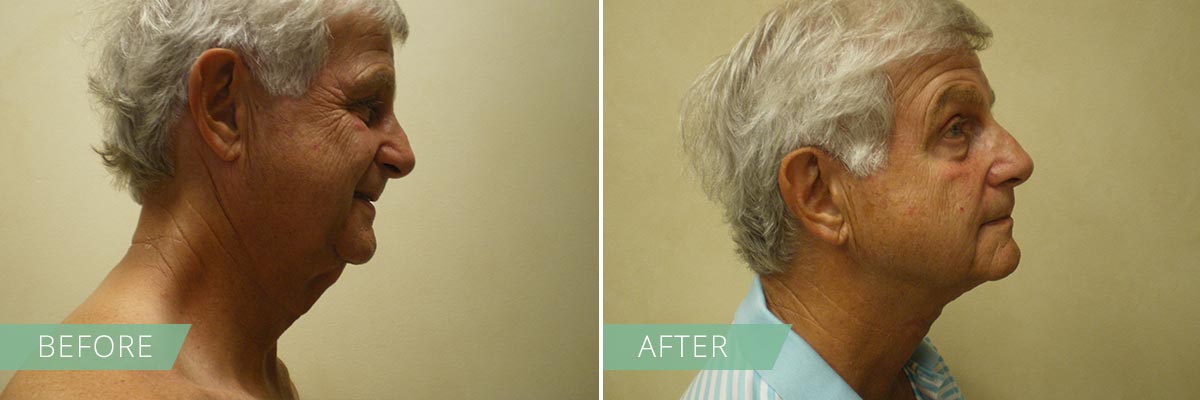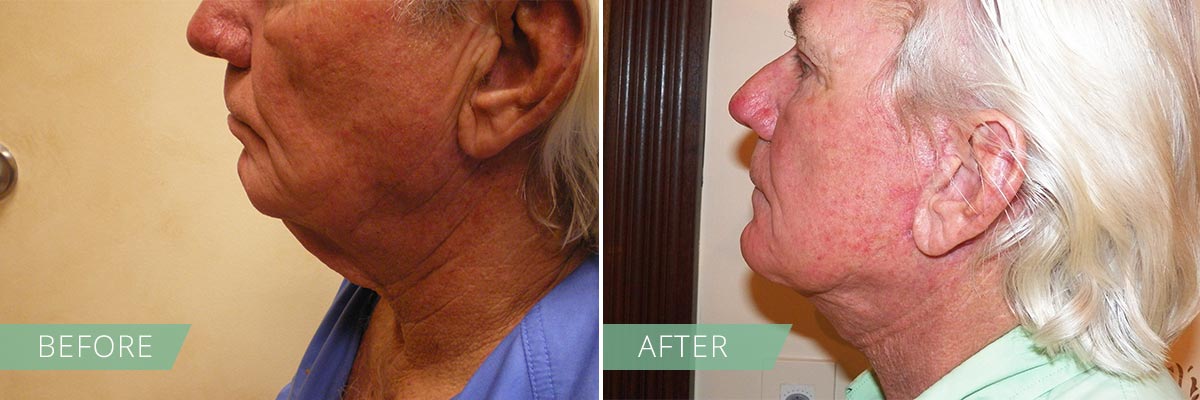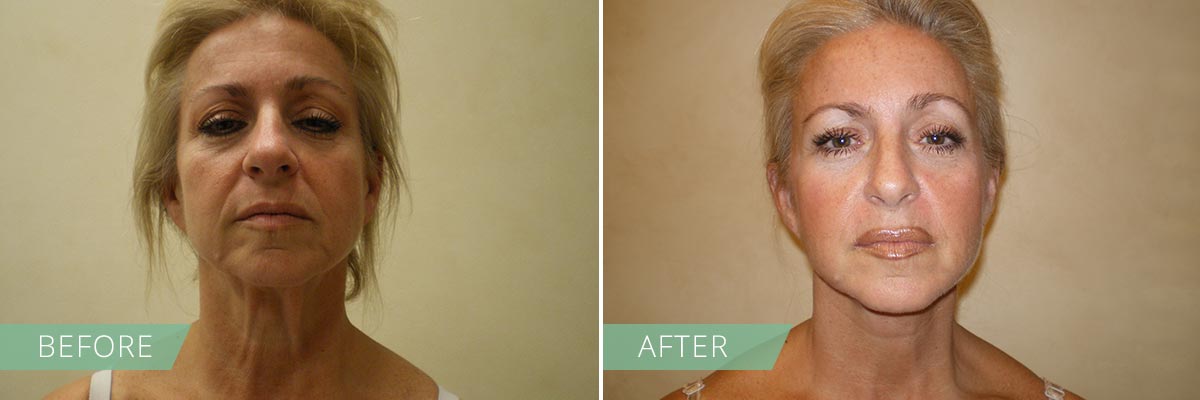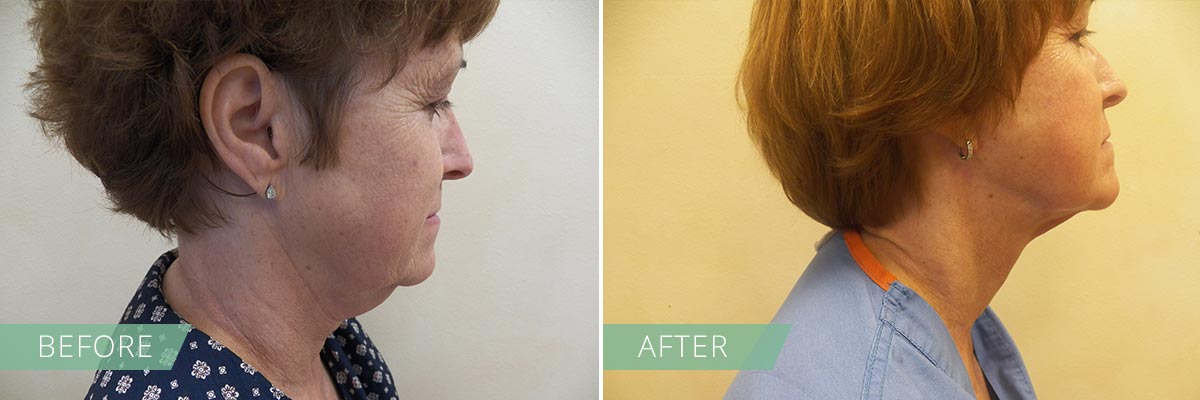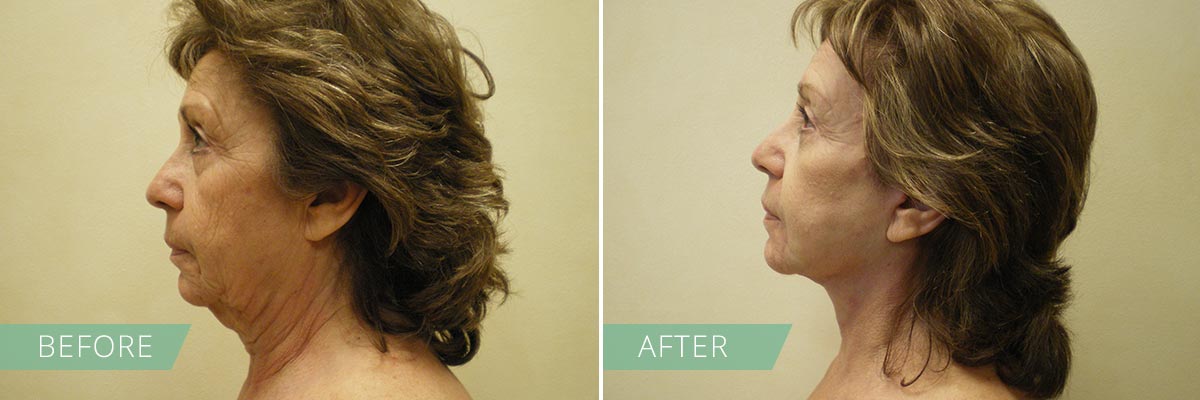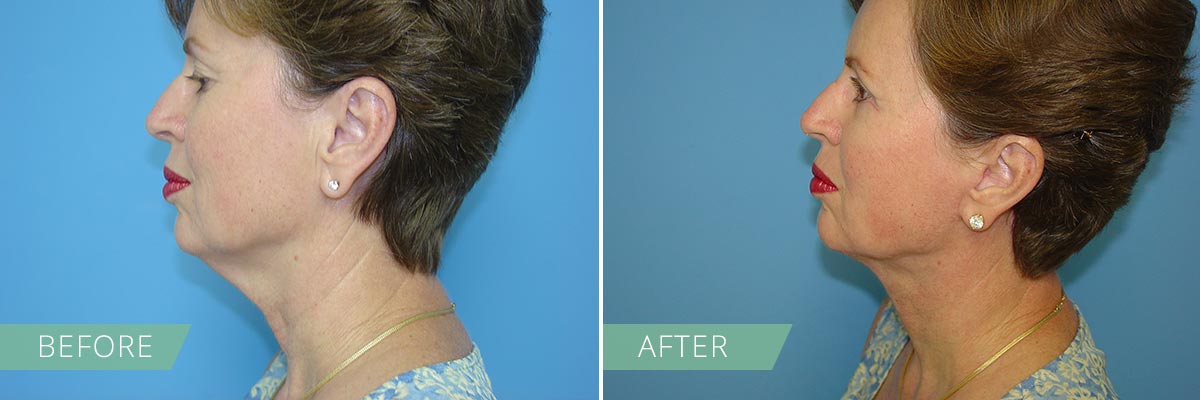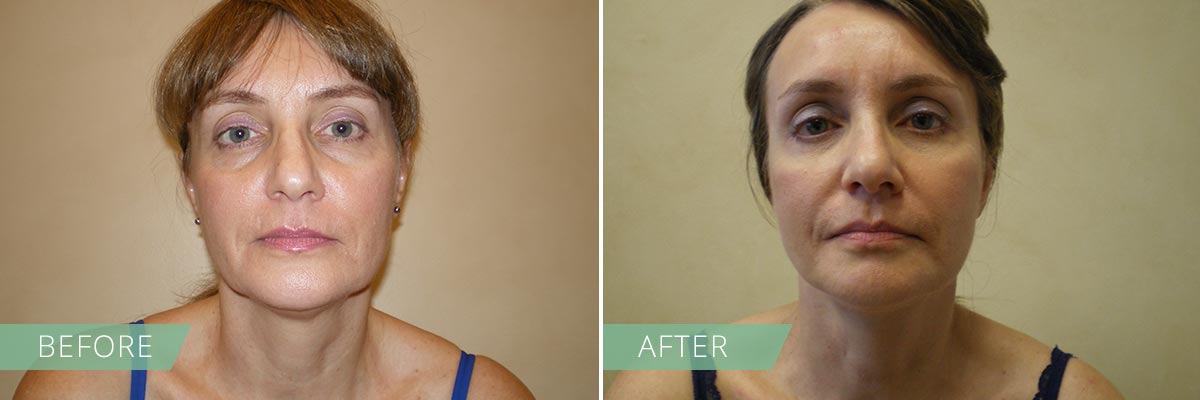There are a number of procedures available to enhance the appearance of the neck. They range from more minimal in-office treatments with no down time, to more invasive procedures requiring anesthesia and time off for recovery. Aging of the neck is usually a combination of loose skin and muscle and some excess fat. To decide what is best for you, start with a consultation with Dr. Yalamanchi to express your concerns.
Listed below are some of the treatment options for the “aging” neck:
Botox Injections: The vertical bands that extend the under chin to the base of the neck are caused by the neck muscle called the platysma. Botox can be injected into the muscle temporarily reduce the appearance of the bans. This is a simple in office procedure that requires no anesthesia and allows you to get right back to your normal activities
Liposuction: To remove excess fat from the neck, liposuction is quite effective. This procedure is often done alone or maybe performed as part of a neck lift. If this is the only procedure you’ll need, you should plan to spend approximately an hour undergoing the operation. Small incisions will be stitched and bandaged. This procedure requires an anesthetic and you should allow five to ten days for recovery. It’s very important to follow Dr. Yalamanchi’s instructions on properly caring for any stitches and bandages in the post-recovery period.
Neck Lift or Neck Lift with Platsmaplasty: This procedure will last two to three hours. If you are having a neck lift in conjunction with liposuction, facelift, forehead lift, or other surgeries, the time may vary. In order to undergo a neck lift, your must be in good general health, both physically and mentally.
A small incision is made under your chin and possibly in front of and/or behind your ears. These incisions allow access to the platysma (neck muscle) and any fat in the neck. The neck muscle can then be tightened and any excess fat removed. Dr. Yalamanchi may choose to remove the fat with Liposuction or by cutting it out. The incisions near the ears, also allow for removal of some excess skin.
Once the muscle has been tightened, and any excess fat is removed, the skin is re-draped over the neck. Any excess skin is removed and the incisions are closed with sutures. Sutures may or may not need to be removed depending on whether or not they are dissolvable. It is also possible; you may have a drain for a day or two under the skin on the neck to collect any fluid that would increase your post op swelling and discomfort.
You may also be required to wear a compression bandage to help reduce post-operative swelling. This is usually worn at night and/or day, for at least five to seven days, and then only at night for a longer period of time. It’s important to follow instructions to ensure proper recovery.
During your consultation, you will be instructed on what medications, to avoid prior to your surgery. Certain medications, vitamins, and herbal preparations thin your blood and can cause increased bleeding. There are also strict guidelines that will be given to follow if you are a smoker.
Recovery takes time, and it’s important that you’re patient with the process. Most people can return to work in 10-14 days. If you participate in sports, or if you are physically active, you will have to wait at least three weeks-if not longer-to resume those activities.
What are the complications and side effects of a neck lift?
You will have swelling and bruising that can last for several days. You may feel tightness or tingling and different sensations including burning or pulling. You also will experience area numbness on the skin. These are very normal in the first few weeks following surgery and should not be a cause for concern. As with any surgery, you may run the risk of infection. Please keep a watchful eye on your temperature. At the first sign of a fever, contact Dr. Yalamanchi. If you have unusual discharge, such as pus, from the incision site, contact Dr. Yalamanchi immediately.
Although it’s very rare, you could have an allergic reaction to medications given during or after your surgery. That’s why it’s very important to disclose any drug allergies to Dr. Yalamanchi in pre-operative consultation.

